Grants
Seed
It is in-house financial support, available for consumables, mini equipment, travel grant, fees for characterisation, software purchase and other operational expenses. The intent of this initiative is to support the growth of the researchers by providing them flexible working capital and to leverage these limited funds into substantial external funding, industrial support or creative scholarship projects.
Shodh
Research is the central pillar of UPES, which is not only conducted but also driven by eminent faculty. To widen the roots of research in the institution, a new scheme titled "SHODH" is launched especially for undergraduate students. The scheme aims to enable the students to innovate through investigations and validations under the guidance of expert faculty members. The scheme introduces the students to the research ecosystem at UPES to promote product development and entrepreneurship. The scheme encourages the student to embark on multidisciplinary research by choosing their own teams and mentors. From the year of its inception, the scheme has delivered outcomes in the form of patents, products and original research articles that are published in high-impact journals and also start-ups.
Capacity Building
Learning from Leaders
Instrumentation
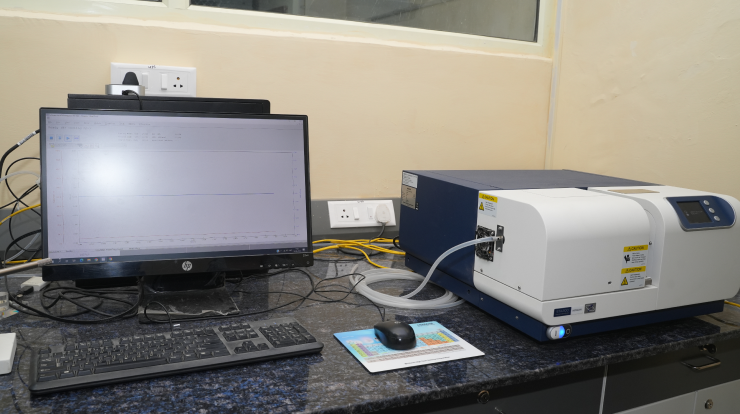
TGA DSC (Inkarp) Thermogravimetri
• TGA tracks mass changes in a sample during controlled temperature changes
• Measures mass loss during constant heating or at fixed temperature over time
• DSC monitors heat flow to/from a sample under controlled temperature conditions
• Uses heating/cooling cycles in inert or oxidising environments
• Each cycle reveals different thermal properties or transitions
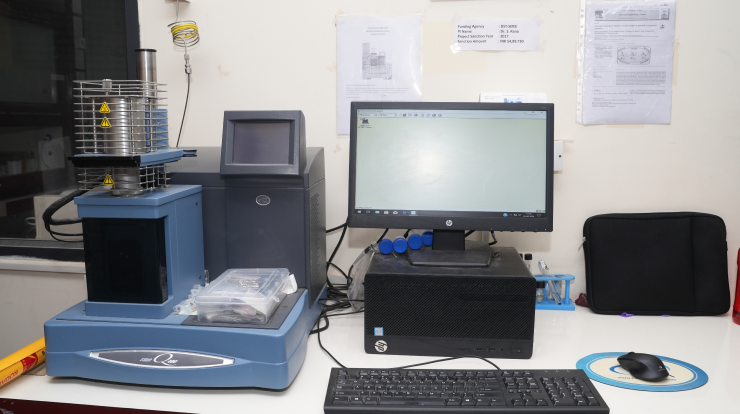
Thermo mechanical Analyser (TA Instruments TMAQ400EM) Intrinsic and product property measurements
• Accurate Co-efficient of Thermal Expansion
• Material performance
• Multilayer film analysis
• Shrinkage force testing
• Film tensile
• Fiber stress/strain measurement
• Thermal stress analysis fibers
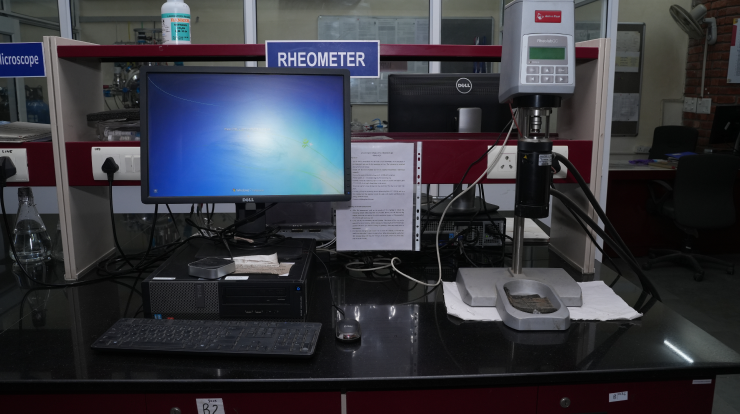
Rheometer (Model C-LTD80/QC, Anton Paar GMBH, Austria, 2013)
• Viscosity measurement – From single point up to complex rheological tests
• Quick and accurate temperature control
• Ease of operation for single-point viscosity determinations as well as more sophisticated rheological tests
• A wide range of applications covered by only one rotational rheometer
• A broad variety of measuring systems and accessories for a multitude of applications
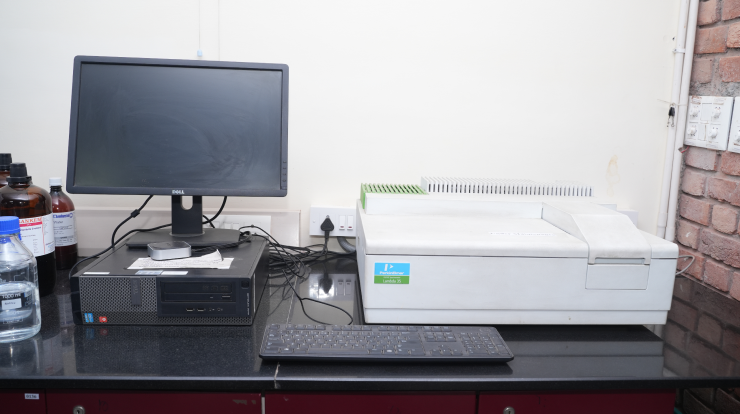
Spectro Photo meter UV-Vis (LAMDA 35, Perkin Elmer)
• Determination of metal and organic non-metal analytes in water
• Characterisation of petrochemical Products
• To generate quick and easy methods for common food analyses without the need for extensive training ensuring that the correct results are reported without compromising food quality.
• High optical quality for environmental analysis
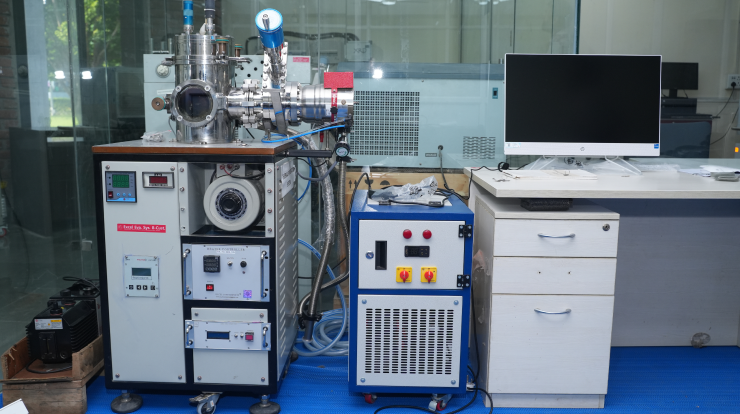
Sputtering System (Excel Instruments)
• Deposits thin anti-reflection coatings on glass for optical uses
• Ideal for contact metal layers in thin film transistors due to low substrate temperatures
• TUsed for low-emissivity coatings in double-pane windows (multilayer of silver and metal oxides like ZnO, SnO₂, TiO₂)
• Common in tool bit coating with sputtered nitrides (e.g., titanium nitride) for hard, gold-coloured surfaces
• Applies metal layers (e.g., aluminium) in CD and DVD fabrication
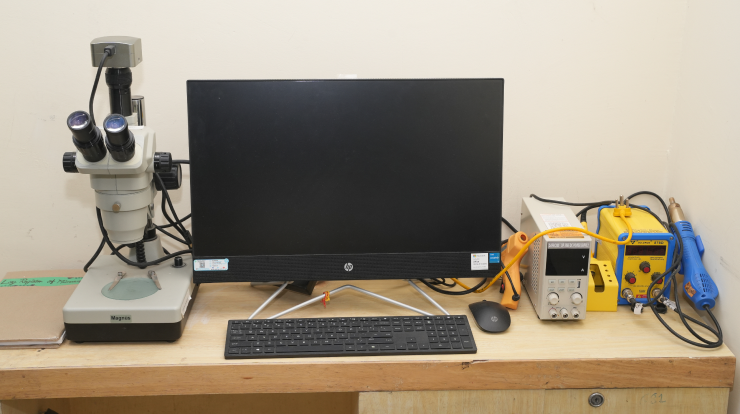
Optical microscope with digital camera (Magnus MSZ-TR)
• Light source: LED
• Camera casing: metal alloy
• Camera dimension: 60x60x40 mm
•Spectral range: 380-650 nm with IR filter
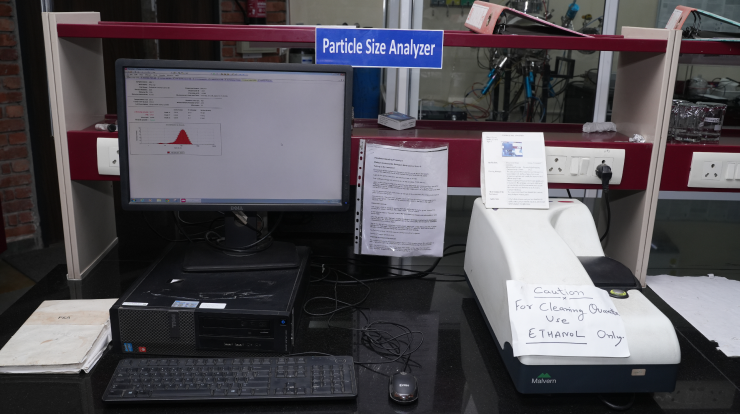
Particle size analyzer (ZEN1690, Malvern Instruments Ltd, 2013)
• For solids, the surface area of the particle is critical in determining the rate of chemical reaction.
• Particle characterization analyzers have found uses in quality control, process material evaluation, and research and development for applications
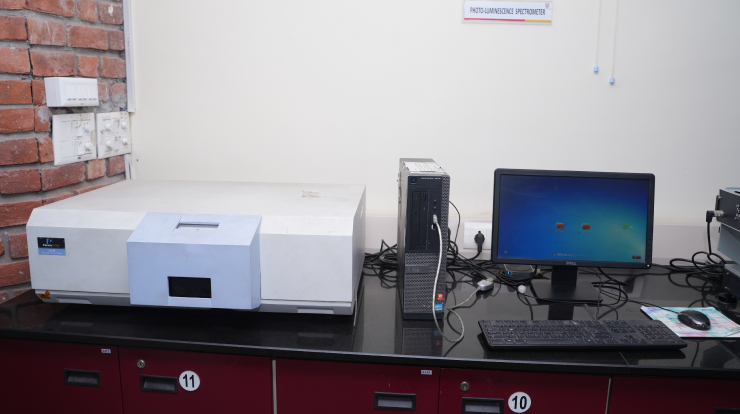
Photoluminescence Spectrophotometer (LAMBDA 45, Perkin Elmer, 2013)
• Quantification of heavy metals (nanomaterials) in freshwater, seawater, air, and soil.
• Soil contamination from organic materials.
• Sunscreen efficacy.
• Water and wastewater analysis
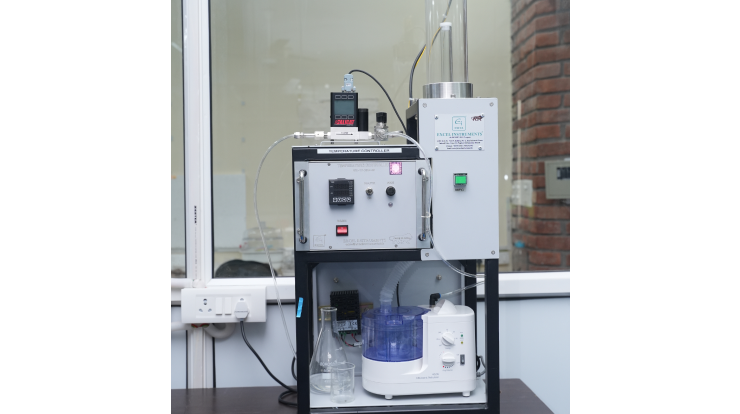
Thermal Evaporation System (Excel Instruments)
Consist of chamber, electrode assembly, substrate heater with temperature controller, gate valve, gas flow assembly, thickness monitor, filament power supply.
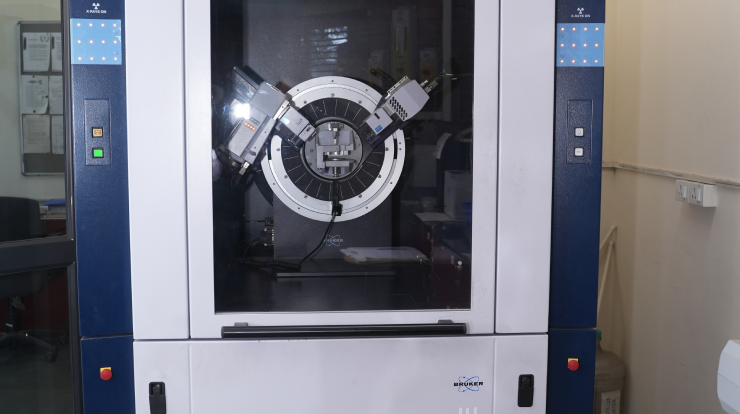
XRD (Malvern Pananalytic)
In GIXRD, the incident angle of the X-ray beam hitting the sample is adjusted relative to the critical angle of the reflected X-rays in the same way as in X-ray reflectivity, with which the structural properties of thin films can be determined. The critical angle of the reflected X-ray beam is unique for every material and is generally very small. The higher the incident angle relative to the critical angle of the material, the deeper the X-rays go down into the material. Therefore, if the incident angle of the X-rays rises above the critical angle, the depth of the penetrating X-rays increases rapidly. When the incident angle is smaller than the critical angle, the X-rays go through the sample only a few nanometers.
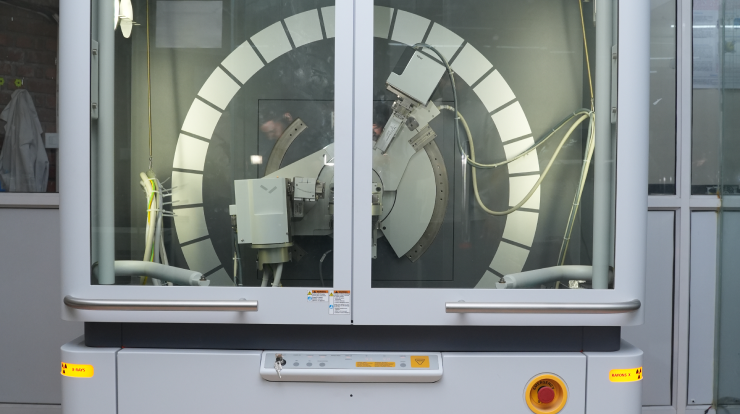
XRD (D8 ADVANCE ECO - Bruker)
• Non - destructive techniques to identify crystalline phases and orientation.
• To determine structural properties: strain, grain size, epitaxy, phase composition, ordered disordered transformation, thermal expansion etc.
• To determine crystalline and amorphous arrangements.
• Measurement of thickness of layers
• Determination of texture of poly grained material
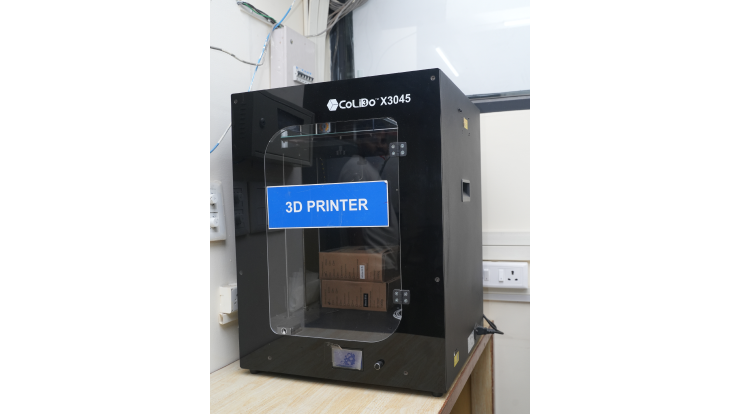
3D printer (COLIDO X 3045)
Extra large build size: 11.8”x11.8”x17.7” (30x30x45 cm), clean and easy to use, industrial level quality & smooth building surface – up to 0.1 mm resolution, stable & quite.
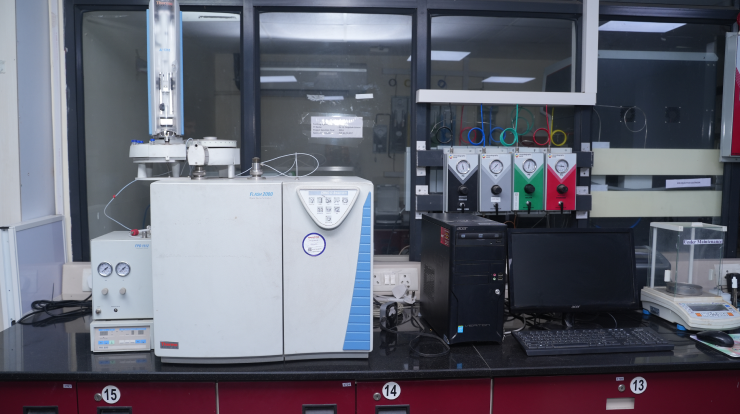
CHNS-O Analyzer (Flash 2000 Series, Thermo Scientific)
• To analyse organic CHNSO composition of the solid and liquid samples from 0.01 to 100% using TCD.
• To analyse trace level sulphur up to 25 ppm using FPD
• Organic CHNSO composition of solid and liquid samples such as biomass, bio-oil, liquid and solid fuels.
• Provide information about structure of material.
• Predicting theoretical calorific value from the CHNSO composition of the sample
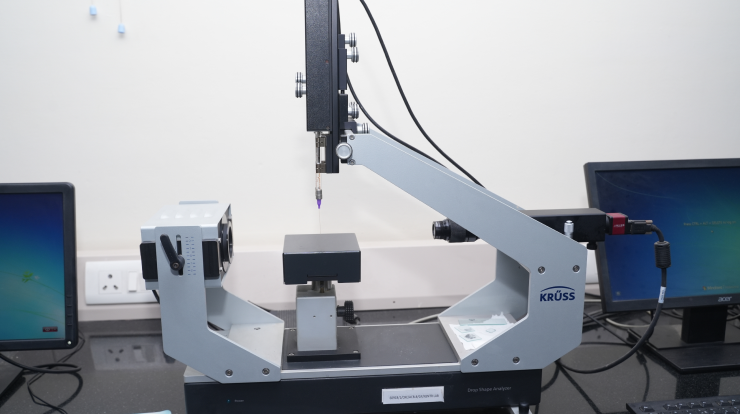
Contact Angle Goniometer/Drop Shape Analyzer (DSA25, Kruss)
• Characterization of surface pre-treatment processes
• Investigation of the adhesion and stability of bonding and coating processes
• Investigation of coating substances in accordance with DIN 55660
• Checking the wettability of plastic, glass, ceramic, wood or metal
• Quality control for wafers and microelectronics
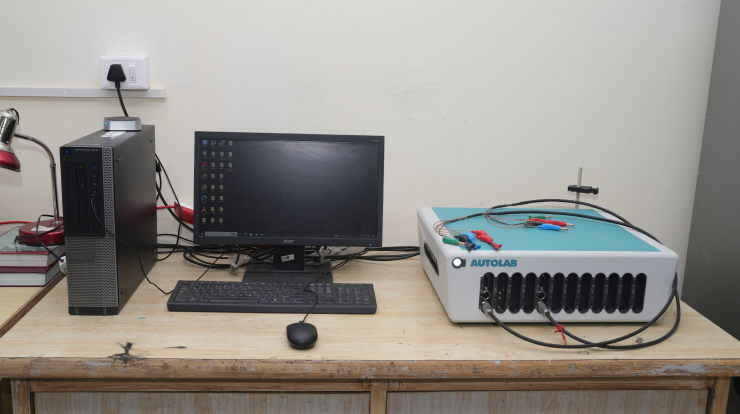
Electrochemical Workstation (Autolab M204)
Potential range: -10 V to +10 V, compliance voltage range: ±20, maximum current in ampere: ±0.4, Number of current ranges: 8, number of current ranges remark: 10 nA to 100 mA, maximum number of modules: 1, maximum number of channels: 12, Potential & current accuracy: V: ±0.2% ±0.2mV and i:±0.2 % ±0.2% of current range, potential resolution: 3µV (gain 100), current resolution: 0.0003% of current range, maximum bandwidth in Hz: 1M, Input impedance in Ohm: 100 G.
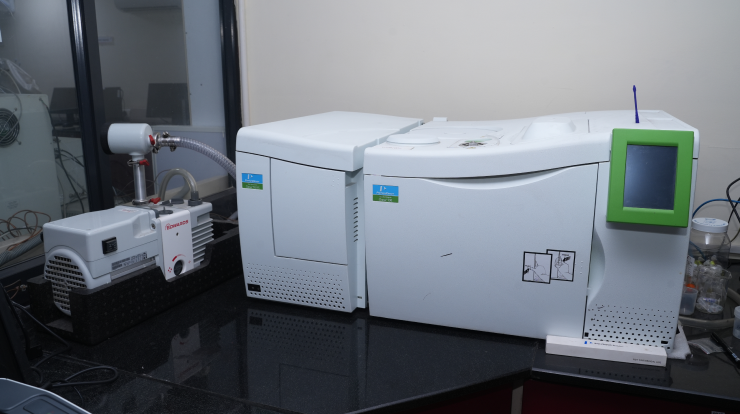
GC-MS (CLARUS SQ8S, Perkin Elmer)
• Test for contaminants and quality in food, flavors and fragrances
• Monitor for VOCs and SVOCs in air, water and soil
• Ensure quality of consumer goods, including plastics
• Analyze lubricants for quality and conformity
• Meet global regulatory requirements
• Gain efficiencies in sample handling through an autosampler
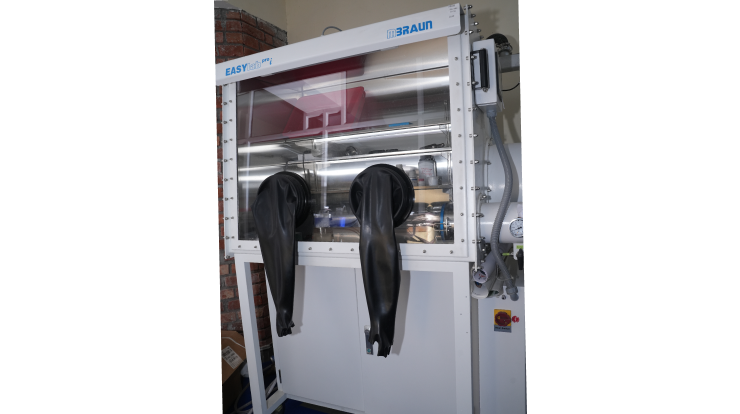
Glove Box
A glove box is a sealed container that is designed to allow one to manipulate objects where a separate atmosphere is desired. Built into the sides of the glove box are gloves arranged in such a way that the user can place their hands into the gloves and perform tasks inside the box without breaking containment. Part or all of the box is usually transparent to allow the user to see what is being manipulated.
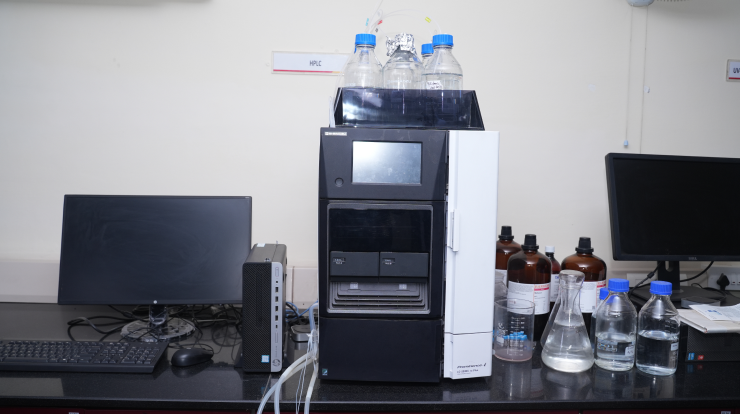
HPLC (Prominence I series, Shimadzu)
• High injection precision for precise quantification, and exceptional retention time repeatability aid in accurate peak identification
• Detection capabilities include photodiode array, refractive index
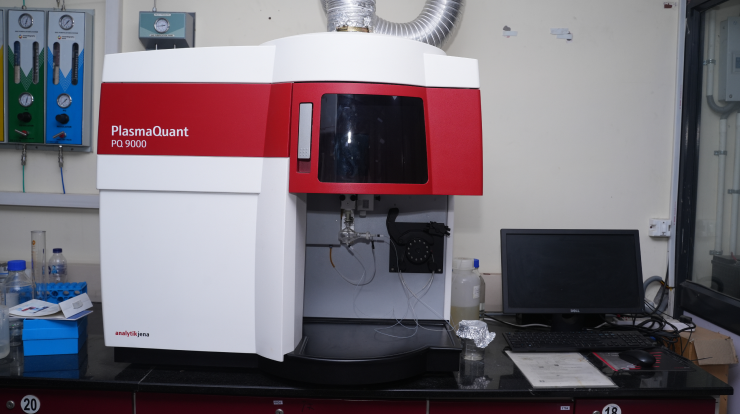
ICP-OES (Plasma Quant 9000- Analytikjena)
• Direct Analysis of Saline Matrices.
• Composition Analysis of an Electrolytic Etching Solution.
• Specification Analysis of Gasoline.
• Trace Metals Analysis in Water-Methanol-Oil Mixtures.
• Analysis of Rare Earth Elements in Granite and Sandstone.
• Analysis of High-alloyed Steel

Laser cutter engraver (CW-6040)
Lasing system = CO2 laser tube (λ = 10.6 μm) Laser power = 100 W Cutting speed = 0 – 800 mm/s Engraver speed = 0 – 1000 mm/s Spot size = 50 µm Working area = 2’ x 1.5’ Substrate possibilities = acrylic, MDF, cellulose sheet, Kapton sheet etc.
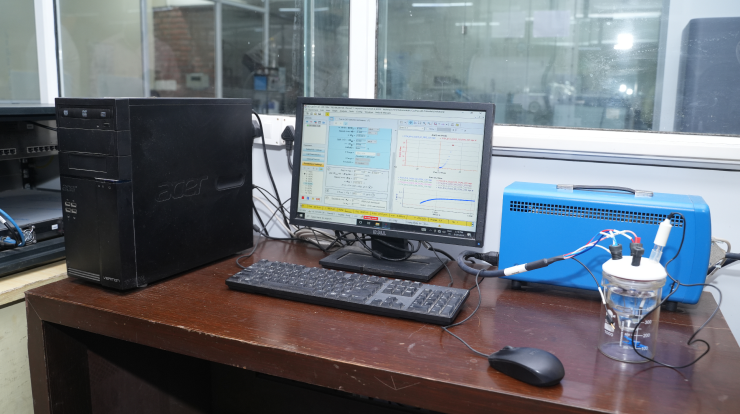
Potentiostat-Galvanostat (CHI660E, CH Instruments, USA, 2013)
• General purpose electrochemical measurements
• Kinetic measurements
• Electroanalysis
• Fundamental research
• Corrosion
• Battery studies



